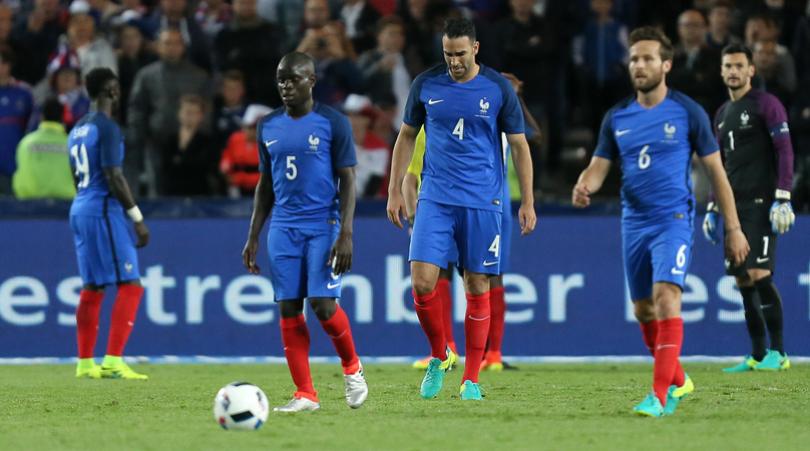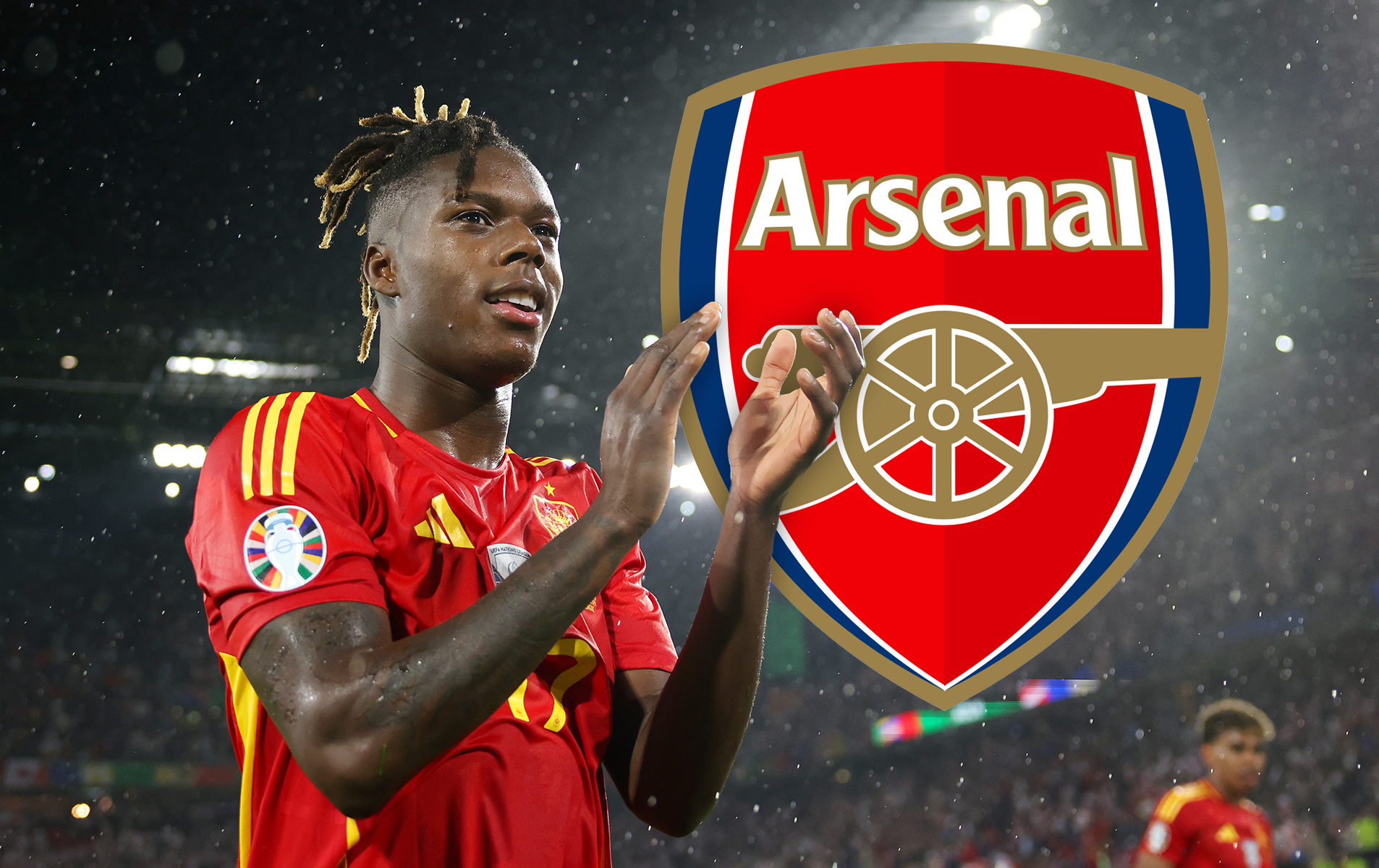What happened to France’s lost ‘87 Generation? A tale of promise, bust-ups and bitterness
In 2004, Karim Benzema, Samir Nasri, Hatem Ben Arfa and Jeremy Menez were dazzling with France’s under-17s, all braced for bigger things. Yet, in their nation’s big year, none of them are around – and never will play a minute together, writes Alex Hess...
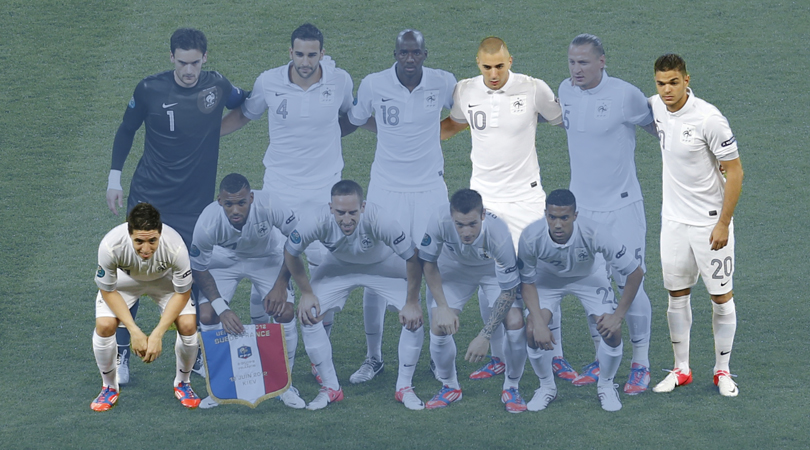
This should be their year, but none of them will be there. If, a decade ago, you were to tell anyone involved with French football that their country would be hosting the European Championship this year, they couldn’t have picked a better time for it: 2016, surely, would be when France’s golden crop hit the peak of their powers.
That was a time when France’s precocious, prestigious “‘87 Generation” – a quartet of players born in that year – were coming to the fore. Unlike today, it was a time when that moniker was used with buoyancy rather than bitterness.
Free spirits
I don't think I've ever enjoyed myself so much on a football pitch. We were so good. We could find each other with our eyes closed
Twelve years ago, in the summer of 2004, Jeremy Menez, Hatem Ben Arfa, Samir Nasri and Karim Benzema were all part of the France side that beat their Spanish counterparts (among them Cesc Fabregas and Gerard Pique) in the final of the U17 European Championship.
By the embryonic standards of under-17 football, France’s was an exceptional, advanced side. Their glittering dominance of the tournament grabbed attentions across the continent, the triumph driven by its four standout attackers who between them contributed eight of the side’s 10 goals.
"It's one of my best memories," Nasri, whose cleanly struck long-ranger in the final clinched the trophy, later said. "I don't think I've ever enjoyed myself so much on a football pitch. We were so good. We could find each other with our eyes closed."
Benzema, Ben Arfa and Samir Nasri celebrating France's Under-17 European championships win, 2004. March 19, 2014
With this band of talented teenagers emerging just as the existing generation of revered World Cup winners were winding down (Barthez, Vieira, Thuram, Trezeguet and Zidane would make their last major hurrahs in the 2006 World Cup Final two years later), the timing seemed impeccable.
Get FourFourTwo Newsletter
The best features, fun and footballing quizzes, straight to your inbox every week.
The sense of baton-passing destiny was heightened by the fact that the U17s’ 2004 trophy had been won on French soil.
The fallen four
Despite the ‘87 Generation having ostensibly hit their prime at the ages of 28 and 29, their story is instead one of wrong turns, underachievement and frequent, inflammatory controversy
But none will be repeating the trick this summer as France once again hosts a European Championship. Despite the ‘87 Generation having ostensibly hit their prime at the ages of 28 and 29, not one has been selected for Didier Deschamps’ squad. Their story is instead one of wrong turns, underachievement and frequent, inflammatory controversy.
They have only been selected together for one major tournament, four years ago. Fittingly, that tournament ended in divisive failure, with three of the four summoned by a disciplinary panel afterwards: Nasri was given a three-match ban for swearing at reporters; Menez a one-match ban for confronting the referee and his own captain as his team were knocked out; and Ben Arfa an official warning for a dressing-room row with his own manager. They have never played together since.
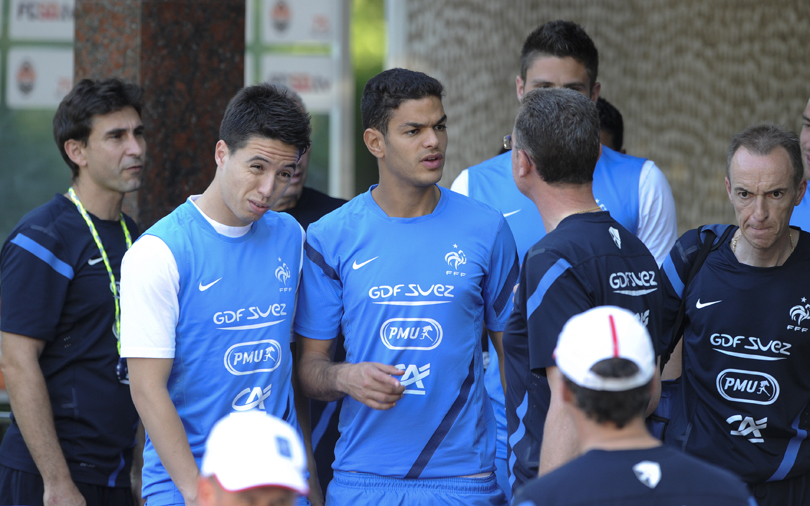
Menez, whose jinking run down the wing laid on the 2004 final’s opening goal, and who burst onto the scene at senior level a few months later with an astonishing seven-minute hat-trick against Bordeaux at 17, has forged a wholly decent career while rarely matching early expectations.
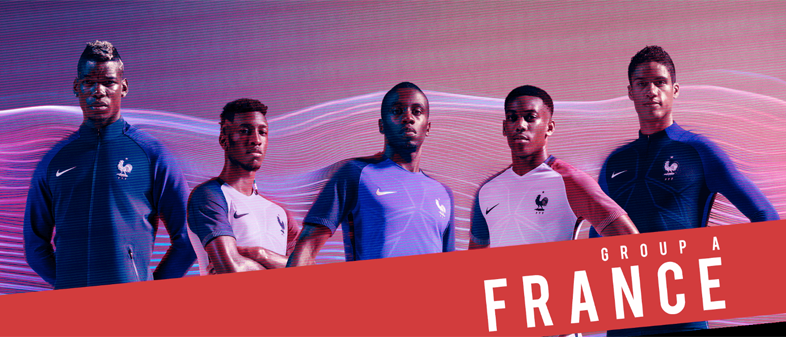
Get clued up on France with FFT's Euro 2016 guide
He has largely spent his time at various fallen European giants of decades past: Monaco, Roma and Milan, the latter where his 16-goal season two years ago marked a career high, only to be followed up by the injury-ravaged campaign just gone in which he only made just two league starts.
Before that, he was gradually ushered towards the peripheries during three years at PSG as the club grew in stature, while his bit-part outings for France have been marked with the same streak of unproductive nonchalance that has seen him fail to consistently convince at club level.
A series of scrapes
They have only been selected together for one major tournament, four years ago. Fittingly, that tournament ended in divisive failure
Ben Arfa, to his credit, has spent the last year at Nice reviving his career in a manner that deservedly got him onto Deschamps’ standby list for this summer’s squad, but no further.
This praise should be caveated with the fact that his career had before that been trodden so far into the gutter that anything other than upwards progress was unfathomable. It’s a trajectory made doubly dismaying by the fact that Ben Arfa was by some distance the 87 Generation’s standout talent, a fearless dribbler who was the tournament’s joint-top scorer back in 2004 and described as “a genius” by Gerard Houllier.
Ben Arfa shared four seasons at Lyon with Benzema as the pair’s senior careers began to take off (the club’s coach Alain Perrin, admitted in 2008 that the two “are not best mates”) – but then it all went wrong. A training-ground scuffle with Sebastien Squillaci prefaced two years at Marseille that were in turn marked by two separate fights with team-mates, two disputes with (different) managers, one fine for missing training, and a domestic league and cup double.
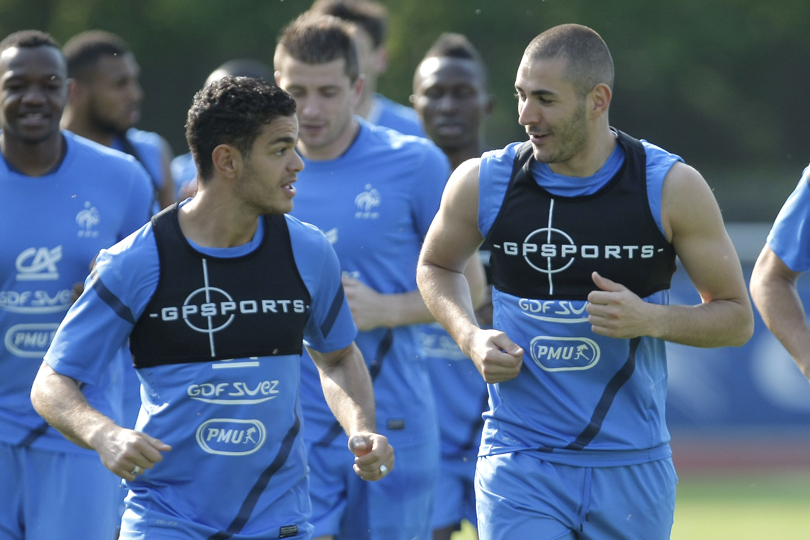
An occasionally brilliant but generally frustrating three-year spell at Newcastle followed, concluding with a well-fed Ben Arfa estranging swaths of his dressing room and being frozen out by Alan Pardew.
The playmaker responded to the resulting loan move at Hull by going AWOL after eight games and promptly signing for Nice, for whom he couldn’t play for the next six months due to UEFA regulations. This year, though, he has been electric, one of Ligue 1’s standout players. All in all, it’s been quite the journey.
Scratch beneath
Ben Arfa’s fellow Premier League émigré, Nasri, has at a glance had an ostensibly more successful career in England. Except, chip away beyond the high-profile moves and the modest medal haul, and the same themes of disapproval, disappointment and discontent arise yet again.
In hindsight, Nasri’s career thus far pinnacled with a startlingly impressive purple patch with Arsenal at the tail end of the 2010/11 season, a run that springboarded a £25m move to newly moneyed Manchester City. But rather than paving the way for enduring elite-level excellence, that move simply begun the routine already adopted by Menez and Ben Arfa: a peripheral and ultimately underwhelming role in trophy-winning sides, punctuated with sporadic moments of class and peppered with public fall-outs.
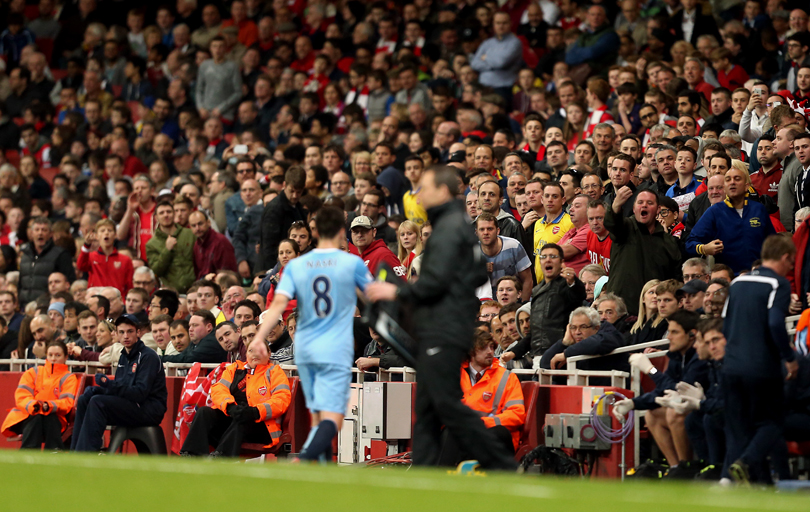
Nasri left Arsenal under a cloud of resentment from team-mates and fans, and his on-off France career has been soundtracked by whispers of insolence and fractiousness: notably, William Gallas wrote about a young Nasri flagrantly disrespecting squad hierarchy by sitting on Thierry Henry’s seat on the team coach and refusing to budge.
Indeed, Nasri’s time with France already looks to have concluded: he announced his international retirement two summers ago, aged 27, having failed to make the cut for the World Cup in Brazil. “The French national team doesn’t make me happy,” he said. “Every time I go there, there is just more trouble.”
At club level, Nasri remains an expensive component of a heavyweight squad. He has shown himself to be a match-winner, too, though how compatible his laissez-faire playing style is with Pep Guardiola’s relentless drive for self-improvement remains to be seen.
Certainly the many who saw the young Nasri, the elusive playmaker from a French-Algerian background, as the natural successor to Zinedine Zidane will have spent the last decade growing evermore underwhelmed, however crude the initial comparison may have been.
Race and bad relations
As for Benzema, he has perhaps been the ‘87 Generation’s greatest success and its grandest disappointment. By all accounts the most quiet and reserved of the four youngsters, his 12 years at Lyon and Real Madrid have left him with a medal collection that well outstrips his three peers, and simply holding down a starting berth at the Bernabeu for the best part of a decade is praise in itself.
The French national team doesn’t make me happy. “Every time I go there, there is just more trouble
And yet among the French public in this moment, Benzema’s stock is perhaps the lowest of the lot. His role in the ongoing sex tape blackmailing saga of his team-mate Mathieu Valbuena is currently going through the courts, and is why Deschamps – who has stood by Benzema in the past – has has decided to leave him out of this summer’s squad.
Benzema’s tenuous citing of France’s racial discord – a very real issue in French society today – as the motivation behind his omission does not reflect well on a player whose role in the saga has, at the very least, involved some seriously inane decision-making, and perhaps worse.

Yet even before that scandal broke, Benzema’s France career had long carried an underwhelming tinge. A fairly humdrum haul of 27 goals in 81 outings has combined with frequent goal droughts (he once went 17 months without scoring for his country) to aggrieve sections of a tetchy fanbase who feel a player of his pedigree should be elevating the side rather than labouring beneath it.
An unfitting end
His recent banishment marks the pinnacle, and the conclusion, of the ‘87 Generation’s unsuccessful and often unsavoury involvement with the French senior side.
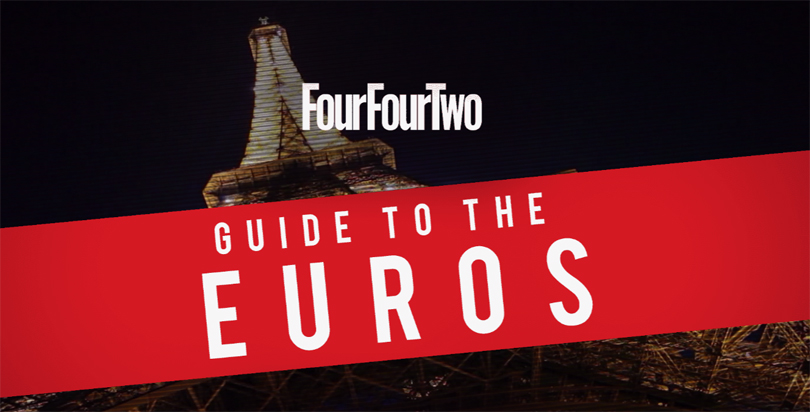
All 24 Euro 2016 teams profiled, plus must-read features with FourFourTwo
Perhaps they’re a warning tale too, to today’s emerging starlets; that freewheeling cohort led by Paul Pogba, Kingsley Coman and Anthony Martial – though the early signs are that this is a group whose talent is matched by temperament and drive.
"We used to talk about all playing together in the seniors one day," Nasri said in the lead-up to Euro 2012, the point when it looked as though the quartet were at last set to fulfil their promise. "Now the dream is coming true."
He had spoken too soon. France’s Euro 2012 hopes ended in ignominy and it is a remarkable fact that to this day, the four have never shared a minute of competitive football on the pitch for the French senior team. It is almost certain that they never will.
More features every day on FFT.com • More Euro 2016
